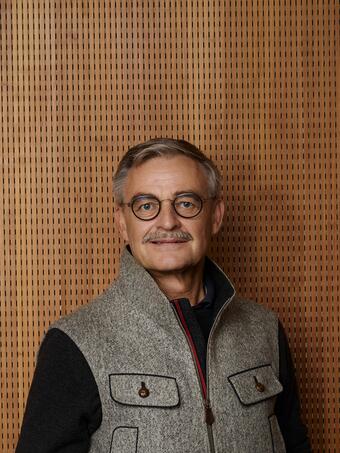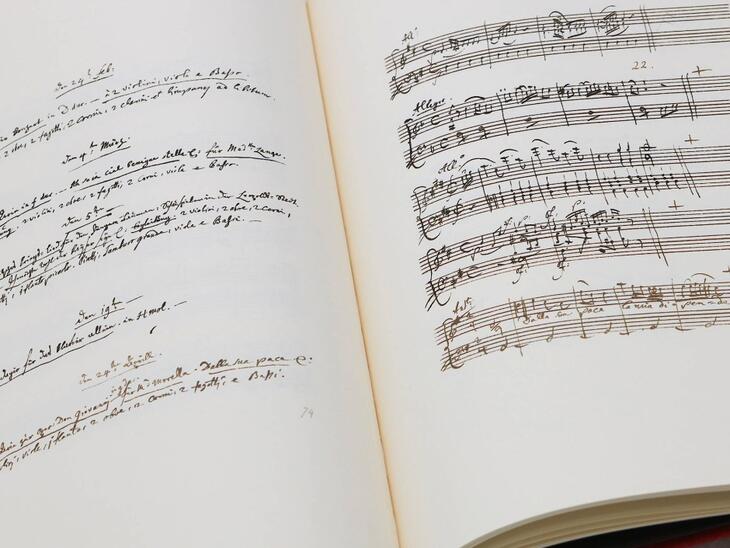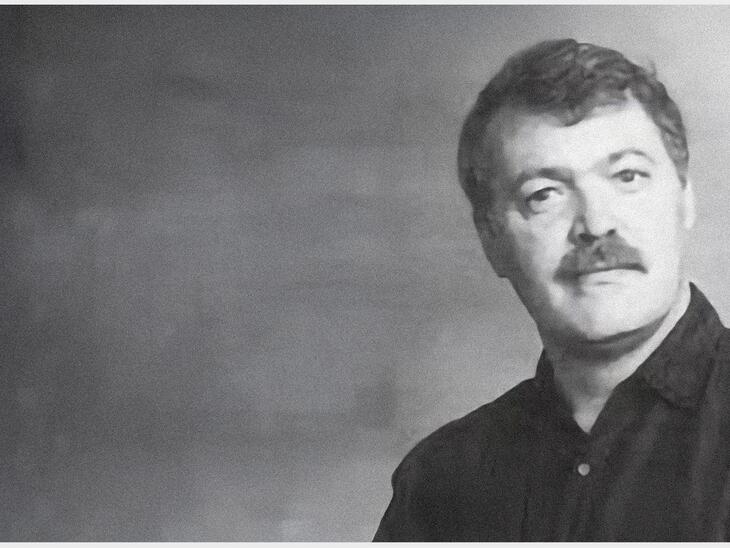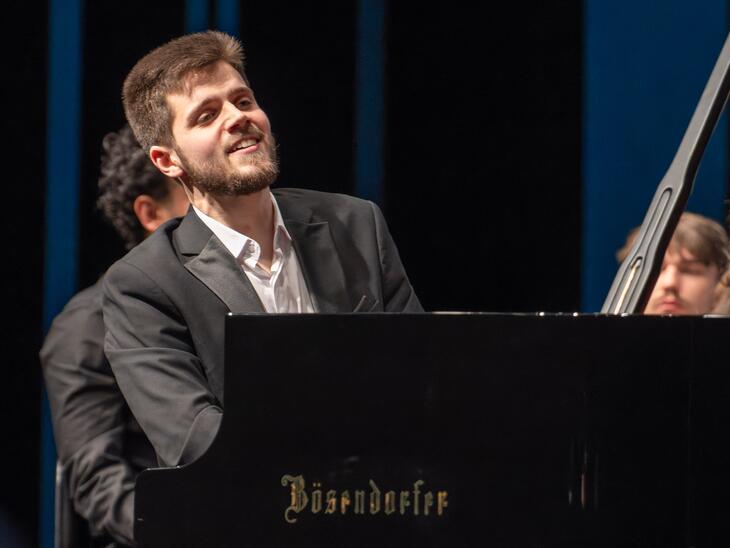The pleasure of doing: 30 years of studying folk music
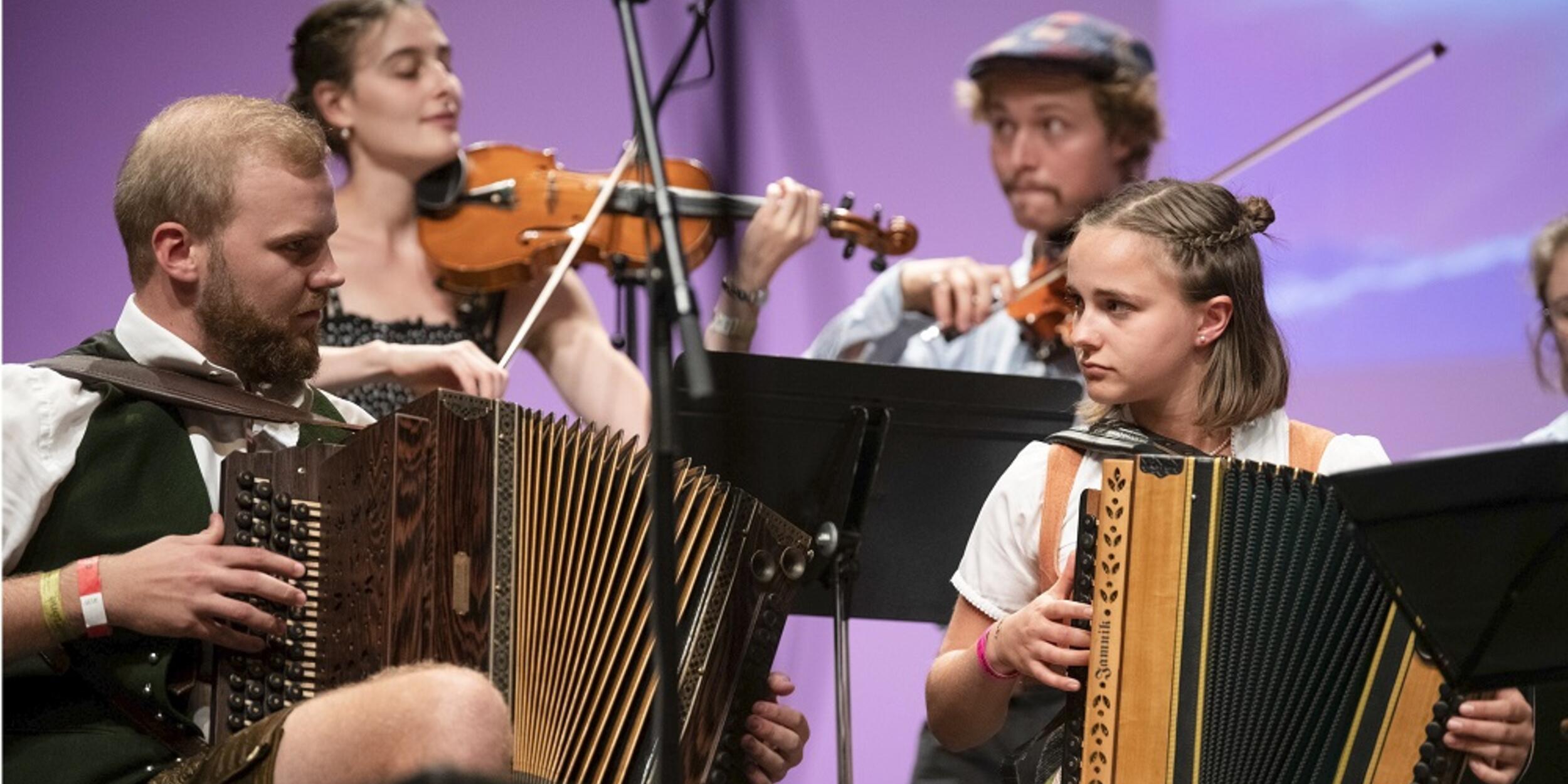
© Alpentöne - Internationales Musikfestival
30 years of folk music studies and study programs at the University Mozarteum: Together with the Lucerne School of Music, teachers and students of the University Mozarteum go on a search for traces between yodel and yodel, tradition and new trends.
STRÖMUNGEN - 30 Jahre Volksmusikstudium an der Universität Mozarteum April 22 & 23, 2022, Solitär Cooperation project of the Mozarteum University and the Lutzern University of Applied Sciences
"It's important to us that students think outside the box and experiment."
— Anton Gmachl
"It was a very rocky road," says Anton Gmachl, lecturer for folk music at the Mozarteum University and chairman of the Association for the Promotion of Music Teacher Training, looking back to the early days of folk music studies in the 1990s. Even in the 1980s, the waiting lists for folk music at music schools were long, and too few teachers had the appropriate professional qualifications in this field. In other provinces there were conservatories through which the demand could be partially met, but not in Salzburg. A gap that proved to be a great advantage in 1992. Out of the difficult initial situation, it was possible at the Mozarteum University to make folk music immediately suitable for higher education and to manifest a corresponding course of study in the curriculum. "We were the first to do so, even though it was difficult to reestablish a study program almost overnight. As of 2002, it was fully valid and on an equal footing with other instrumental and vocal pedagogy studies. The first priority is and always has been high quality, and that is still the case today." thirty years after the start of the "experiment," the study of folk instruments in Salzburg not only forms an essential part of teacher training, but the first students of the first graduates are already beginning their bachelor's and master's studies in harmonica, dulcimer or zither at the Mozarteum - in any combination with other instruments. "It is important to us that students think outside the box and experiment. At the university, you should be able to try out everything, including ensembles. Then you can see if something works or not, always with the scientific element of questioning. We want to open up students' thinking, encourage creativity. In the future, we're going to need creative minds." Questioning and looking beyond, always with an awareness of the roots, is proving to be a central point not only in studies for the 30th anniversary, but also in the planned festivities, which will take place in April together with the Lucerne University of Music. A request from the Swiss university for a new curriculum that was planned in Lucerne for the bachelor's program led to an exchange with a lasting effect. "We were invited to Lucerne last year, rehearsed together for a week and played two concerts at the Alpentöne Festival. That was highly interesting, to get to know the Swiss approach to folk music. In Austria, the development of folk music was strongly defined by the (live) stage: through Tobias Reiser, the Advent Singing, the events in the Salzburg-Bavarian border region and in the entire Alpine region. In Switzerland, we then simply all made music together in a large context, in a large orchestra. That was a completely new approach for us, but it is actually the original characteristic of folk music." Making music together with teachers and students in Lucerne also moved the Salzburgers a great deal in their thinking and approach to this music, and allowed real friendships to develop in the process. This year's double anniversary (30 years of folk music at the Mozarteum University, 15 years of folk music at the Lucerne University of Applied Sciences and Arts) is the ideal occasion to celebrate what has been experienced and to let the student exchange take place this time in Salzburg. Concerts are planned on two evenings with students and teachers from Salzburg and with the "Ensemble Alpini", consisting of folk music students from Switzerland, under the direction of their professor Nadja Räss, one of the most important Swiss yodelers. On April 22, a joint performance will take place in the Bachschmiede in Wals, and on April 23, on the occasion of the festive concert celebrating 30 years of folk music education in the Solitär, there will be a lusty juxtaposition of yodeling in Switzerland ("Naturjodler") and in Austria ("Alpenländischer Jodler"), where the audience will also be invited to join in. "There's an insane amount breaking out right now," says Anton Gmachl, citing Herbert Pixner, for example, who brings the harmonica to the stage, or Oberkrainer music and dance music, which are currently experiencing a renaissance again. "Now things are being rediscovered and reinvented that were there 70 years ago. There is a desire to do things again. And that's why it's important to us that we give our students a pedagogical, artistic toolbox so that they're best equipped for their future work." The living experimentation, the freedom that Anton Gmachl imparts to his students is not only evident in projects such as the one with the Lucerne University of Applied Sciences and Arts, but also in spontaneous jam sessions with colleagues from the jazz and pop fields, such as those that have often taken place in the student lounge at Mirabellplatz 1. Folk music should rather be seen as an umbrella term for an approach to music-making as such, for songs that are whistled after and become "popular hits," Anton Gmachl is convinced. "This is perhaps also a goal for the next 30 years, to make folk music even more hopeful, to enable other instrumentations, to approach music creatively, to be tolerant of others. In this way, folk music never ends, it will always continue to develop. We would now like to motivate young composers who know and are involved with the harmonica to write something for the harmonica again." At the beginning of the 1990s, no one suspected that the trend around the harmonica would last so long. The current demand for folk music education will probably still not be completely met, but at the Mozarteum University, the demand for high quality academic professionalization will be further deepened in the future. To convey to students the "old rags", the primeval rocks and role models of folk music, is an aspect that Anton Gmachl is targeting for the elaboration of the academic perspective and for mediation. "When we talk about folk music, we are talking about the folk music of the last 70 years. Now new currents are coming in - what the folk music of today is, we will only know in 50 to 70 years." (First published in Uni-Nachrichten / Salzburger Nachrichten on March 4, 2022)
